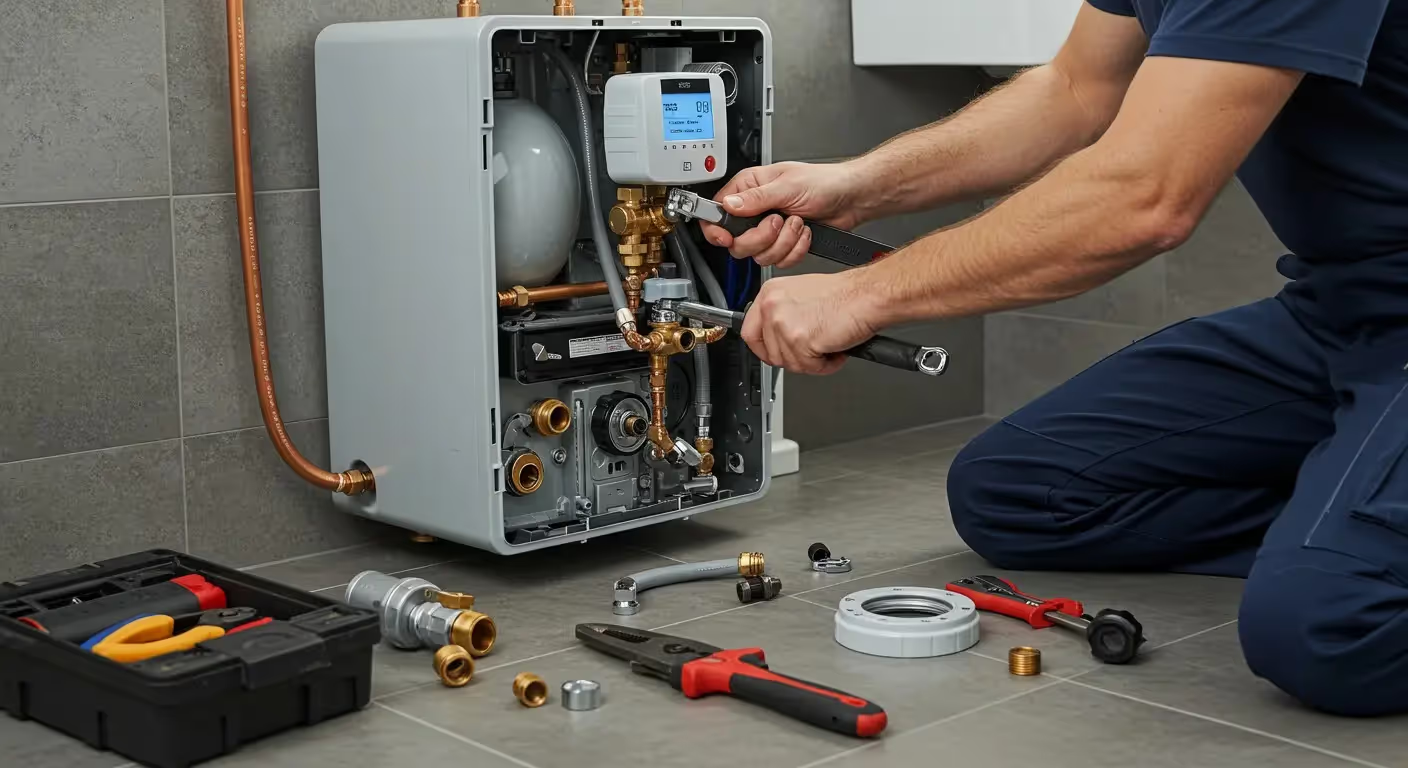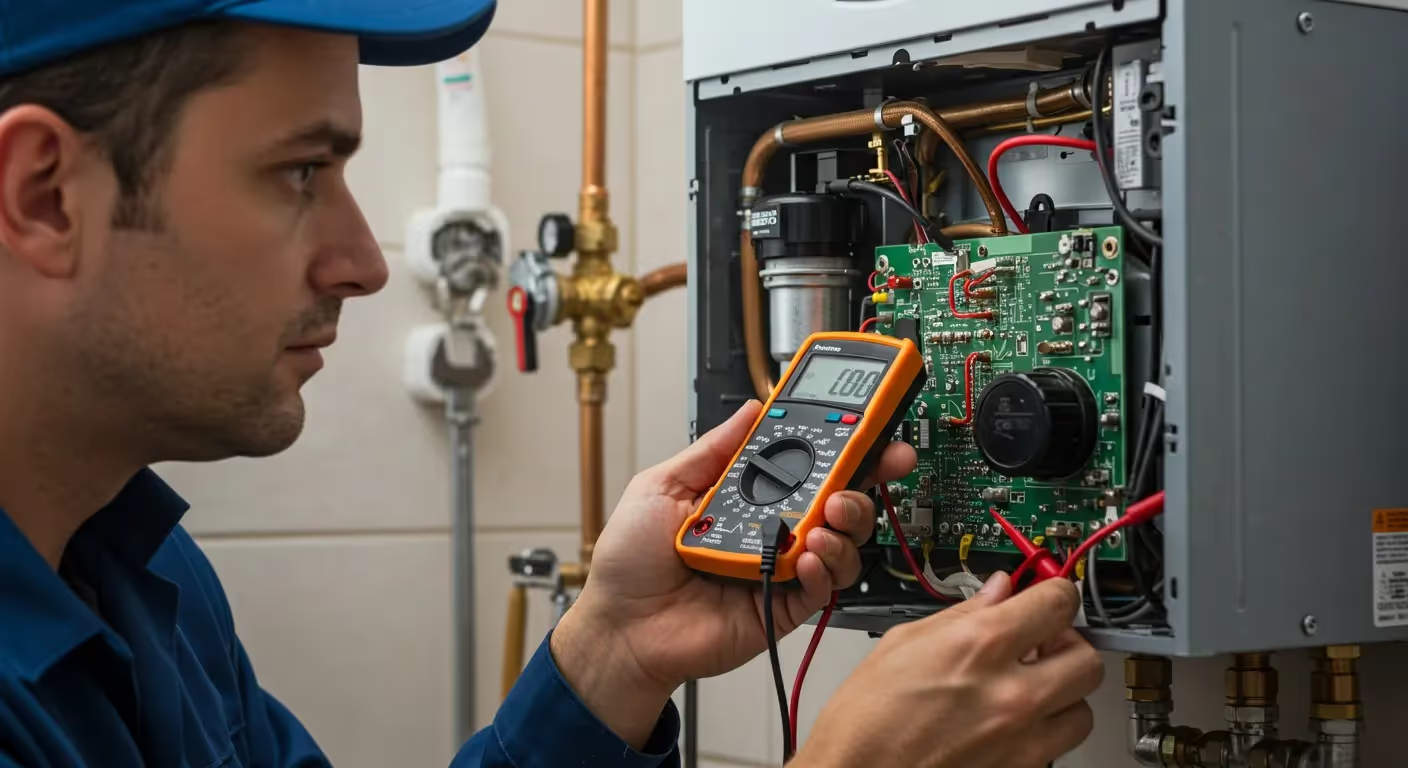Water Heater Replacement Services in Converse, TX
When your water heater reaches the end of its lifespan, deciding on a replacement is a crucial step to ensure your home in Converse, TX, has a reliable and consistent supply of hot water. An aging or malfunctioning water heater can lead to numerous issues, from lukewarm showers to potential leaks and water damage. Replacing your old unit is often a more practical and cost-effective solution in the long run compared to frequent repairs. Understanding the signs that indicate a need for replacement and the options available can help you make an informed decision for your home's needs.
Recognizing the Need for Water Heater Replacement
Knowing when to replace your water heater rather than repair it can save you time, money, and stress. Several key indicators suggest your unit may be nearing the end of its service life:
- Age: The average lifespan of a traditional tank water heater is typically 10 to 15 years. If your unit is within or beyond this age range, replacement is often the most prudent course of action. Tankless water heaters generally have a longer lifespan, often 20 years or more, but still require consideration for replacement as they age.
- Rust-Colored Water: If you notice rust or discoloration in your hot water, it could signal corrosion inside the water heater tank. As the tank rusts, it weakens and can eventually lead to leaks. This issue usually cannot be fixed and necessitates replacement.
- Noisy Operation: Popping, rumbling, or cracking noises coming from your water heater often indicate a buildup of sediment at the bottom of the tank. This sediment hardens over time, causing the unit to work harder and potentially damaging the tank's lining. While flushing can help, severe sediment buildup can mean the tank's integrity is compromised.
- Leaks: Any water pooling around the base of your water heater is a clear sign of trouble. Leaks from the tank itself, as opposed to connections or valves, usually mean the tank has corroded or cracked. A leaking tank is irreparable and must be replaced immediately to prevent significant water damage.
- Frequent Repairs: If you find yourself repeatedly calling for repairs, the accumulated costs can quickly approach or exceed the cost of a new unit. Investing in a replacement provides a fresh start with a reliable system.
- Lack of Hot Water: While this can sometimes indicate a fixable issue like a faulty heating element or thermostat, it can also signify that the unit can no longer keep up with your household's demand or is facing internal failure due to age or sediment.
If you observe one or more of these signs, especially combined with an older unit, it's likely time to consider a water heater replacement in your Converse, TX, home.

Benefits of Upgrading Your Water Heater
Replacing an old, inefficient water heater offers several significant advantages:
- Improved Energy Efficiency: Newer models, both tank and Tankless Water Heaters, are significantly more energy-efficient than units from even a decade ago. This means they consume less energy to heat water, leading to lower utility bills. Tankless systems, in particular, only heat water on demand, which can result in substantial energy savings compared to constantly keeping a tank full of water hot.
- Reliable Hot Water Supply: A new water heater provides a consistent and ample supply of hot water, meeting your household's needs without the sudden cold bursts or slow recovery times often experienced with older, failing units.
- Enhanced Safety: Older water heaters, particularly those with corroded tanks or faulty components, can pose safety risks, including potential leaks, pressure issues, or even gas leaks in gas models. Modern units incorporate advanced safety features for greater peace of mind.
- Reduced Risk of Leaks and Damage: A new tank is free from the corrosion and wear that cause leaks in older units, significantly reducing the risk of water damage to your home.
- Longer Lifespan and Warranty: Investing in a new water heater means getting a unit with a full lifespan ahead of it and typically comes with a warranty that covers parts and sometimes labor, providing protection against unexpected issues.
Types of Water Heaters for Your Home
When considering a replacement, you have options regarding the type of water heater that best suits your needs and preferences:
- Conventional Storage Tank Water Heaters: These are the most common type. They store and heat a large volume of water in a tank, keeping it warm until needed. They are available in various sizes (gallons) to match household demand and come in electric, natural gas, and propane models. They are generally less expensive upfront to purchase and install than tankless units.
- Tankless Water Heaters: Also known as on-demand water heaters, these units heat water directly without using a storage tank. When a hot water tap is turned on, cold water travels through a pipe into the unit, and either a gas burner or an electric element heats it. This provides a continuous supply of hot water. While their upfront cost is higher, they are very energy-efficient, take up less space, and have a longer lifespan. They are available in electric and gas models.
Other options like heat pump water heaters and solar water heaters are also available, offering even greater energy efficiency, though they may have higher initial costs and specific installation requirements. Choosing the right type depends on factors like your budget, energy source availability (gas or electric), household size, hot water demand, and space constraints.
The Water Heater Replacement Process
Replacing a water heater involves several steps performed by a qualified professional to ensure safety and proper function. The process typically includes:
- Assessment: The technician will first assess your current unit and discuss your hot water needs, budget, and preferences to recommend the best replacement options for your Converse, TX, home. This might involve looking at the existing setup (fuel type, venting, space) to determine compatibility.
- Selection: Based on the assessment, you'll choose the new water heater model (tank or tankless, size, fuel type) that meets your requirements.
- Permitting (if required): Depending on local regulations in Converse, TX, a permit may be required for water heater installation. A professional service will handle this process.
- Shutting Off Utilities: The technician will safely shut off the water supply and the energy source (gas or electricity) to the old unit.
- Draining the Old Tank: For tank-style heaters, the tank is carefully drained of all remaining water.
- Disconnecting and Removing the Old Unit: The old water heater is disconnected from the water and energy lines and safely removed from your home.
- Installing the New Unit: The new water heater is carefully placed, connected to the water pipes, and connected to the appropriate energy source (gas line and vent or electrical wiring). This step requires precise work to ensure leak-free connections and proper venting (for gas units) or electrical hookup (for electric units).
- Connecting Venting or Electrical: For gas heaters, the vent pipe is correctly installed or connected to ensure safe exhaust of combustion gases. For electric units, the wiring is properly connected and secured.
- Filling and Testing: The new tank is filled with water, and all connections are checked for leaks. The energy source is turned back on, and the unit is tested to ensure it heats water correctly and safely.
- Final Checks and Cleanup: The technician performs a final check of the system, explains its operation, answers any questions, and cleans up the work area, disposing of the old unit properly.
Professional installation is paramount. Attempting to replace a water heater yourself can lead to dangerous situations involving gas lines, high-voltage electricity, or potential water damage if not done correctly.
Choosing the Right Replacement
Selecting the right water heater involves considering several factors specific to your household:
- Size: The size (capacity) of a tank water heater should match your peak hot water demand. Too small, and you'll run out; too large, and you're paying to heat water you don't use. For tankless, the important factor is the flow rate (gallons per minute) needed for simultaneous use of hot water fixtures.
- Fuel Type: Your options typically include natural gas, propane, or electricity. The availability and cost of these energy sources in Converse, TX, will influence your choice. If you have existing gas lines, a gas heater might be more efficient and provide faster recovery than electric, but if you only have electricity, that dictates your choice.
- Energy Efficiency: Look for units with a high Energy Factor (EF) or Uniform Energy Factor (UEF) rating, which indicates how efficiently the unit converts energy into hot water. ENERGY STAR® certified models meet strict efficiency criteria.
- Cost: Consider both the initial purchase and installation cost and the long-term operating costs (energy bills).
- Space Requirements: Tank water heaters require a dedicated space for the tank, while tankless units are much smaller and can often be mounted on a wall.
A qualified plumbing professional can help you evaluate these factors and recommend the best Water Heaters for your specific situation.
Trust the Professionals for Water Heater Replacement
Replacing a water heater is a complex job that involves working with water lines, energy sources (gas or high-voltage electricity), and potentially vent systems. For safety, efficiency, and code compliance, it is always recommended to hire licensed and experienced plumbing professionals. They have the expertise to correctly size the unit, handle the installation safely, ensure proper venting or electrical connections, and confirm that the installation meets all local codes and regulations in Converse, TX.
While Water Heater Repair & Install covers initial installations and repairs, replacement is a specific service needed when the existing unit fails or is beyond repair. Regular Water Heater Maintenance can prolong a unit's life, but eventually, replacement becomes necessary. Choosing a reputable service ensures your new water heater is installed correctly, providing reliable hot water for years to come.
Financing options
flexible financing solutions

We offer convenient financing options through Wells Fargo, making it easier to invest in plumbing or HVAC upgrades with flexible payments that fit your budget. Your comfort, safety, and satisfaction are always our top priorities—every service, every time.
Apply for Financing
We offer flexible financing options through GreenSky to help you move forward with essential plumbing or HVAC upgrades without delay. With quick approvals and affordable monthly payments, you can get the service you need while staying within budget.
Apply for Financing
We offer financing through Synchrony to make it easier to get the plumbing or HVAC service you need without delay. With simple application steps and convenient monthly payments, you can manage costs while enjoying reliable home comfort.
Apply for Financing
where we serve

